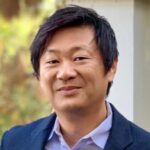
Dr. Choi is a board-certified forensic neuropsychiatrist and Clinical Associate Professor in the Psychiatry Dept. at Stanford University School of Medicine. As a forensic neuropsychiatrist, Dr. Choi specializes in neurolaw, an emerging interdisciplinary field that studies the use and misuse of neuroscience-based evidence in the courtroom. Dr. Choi is the founding director of Stanford’s Forensic Psychiatry Fellowship, the first neurolaw-focused forensic fellowship in the world. His research interests include the use of functional brain imaging to discern mental states (e.g., lie detection, pain assessment), and the neural basis for moral decision-making (e.g., defects in moral reasoning brain centers giving rise to psychopathy). A central question he considers is: How do advances in our knowledge of the neural basis of behavior change perceptions of how offenders should be punished?
Dr. Choi graduated from Stanford University with a Bachelor of Science in a self-designed major of computational neuroscience. He received his medical and doctorate degrees under the federally funded Medical Scientist Training Program at the University of California, San Diego. Dr. Choi’s Ph.D. in Neurosciences was awarded for research in molecular mechanisms of visual system development conducted at the Salk Institute. After medical school, Dr. Choi completed his psychiatry residency at UCLA-Neuropsychiatric Institute, and a fellowship in forensic psychiatry at the University of Pennsylvania, where he specialized in legal issues involving neuroscience, neuroimaging, and neurological evidence. He is a former chair of the Forensic Neuropsychiatry committee in the American Academy of Psychiatry and the Law, and current associate editor for the Journal of the American Academy of Psychiatry and the Law.
Dr. Choi is an experienced public speaker with decades of teaching experience and excels at explaining complex scientific and medical concepts to lay audiences. He has taught and organized professional training for psychiatrists, lawyers, and judges, and routinely gives public lectures on neuroscience.